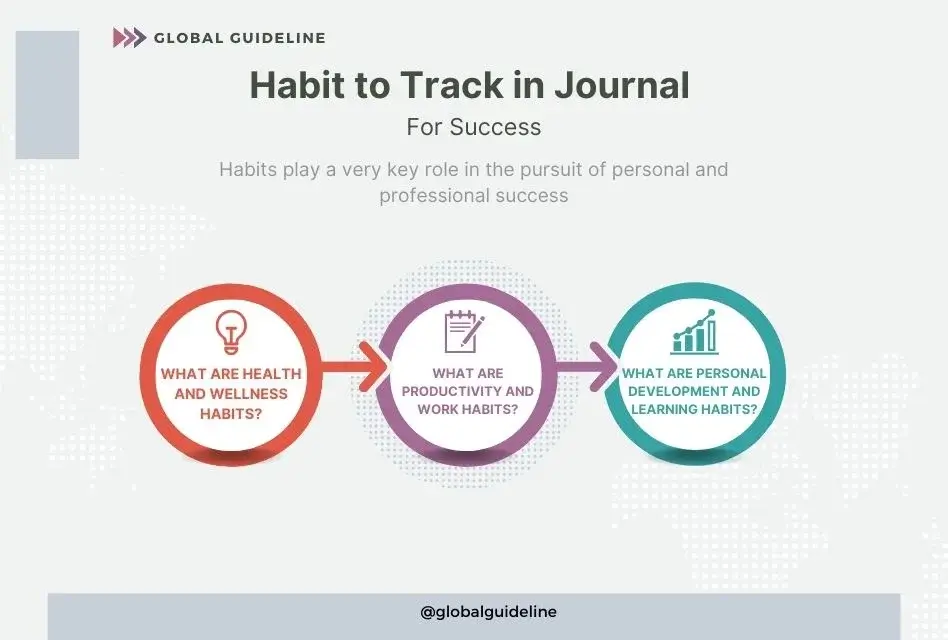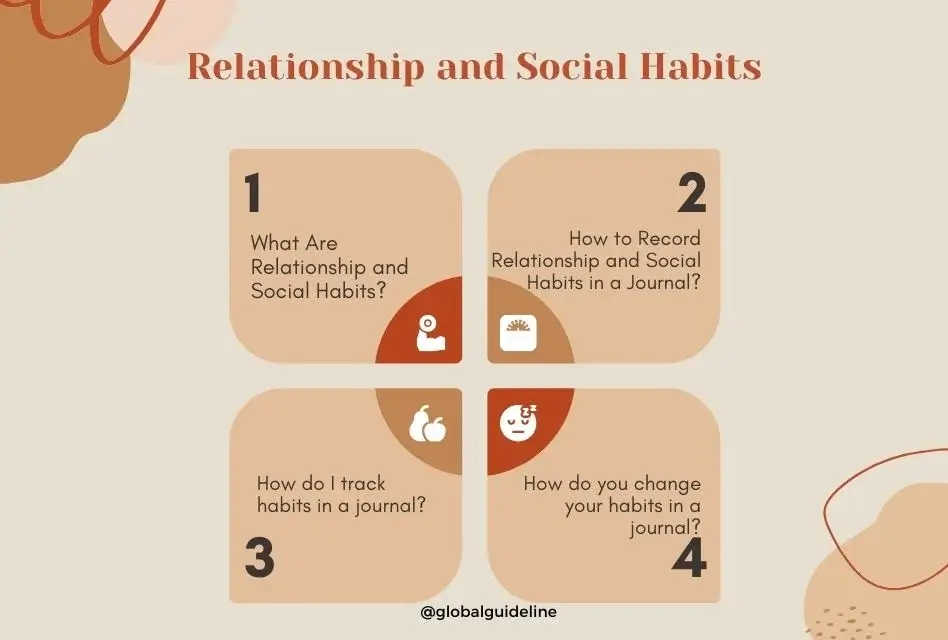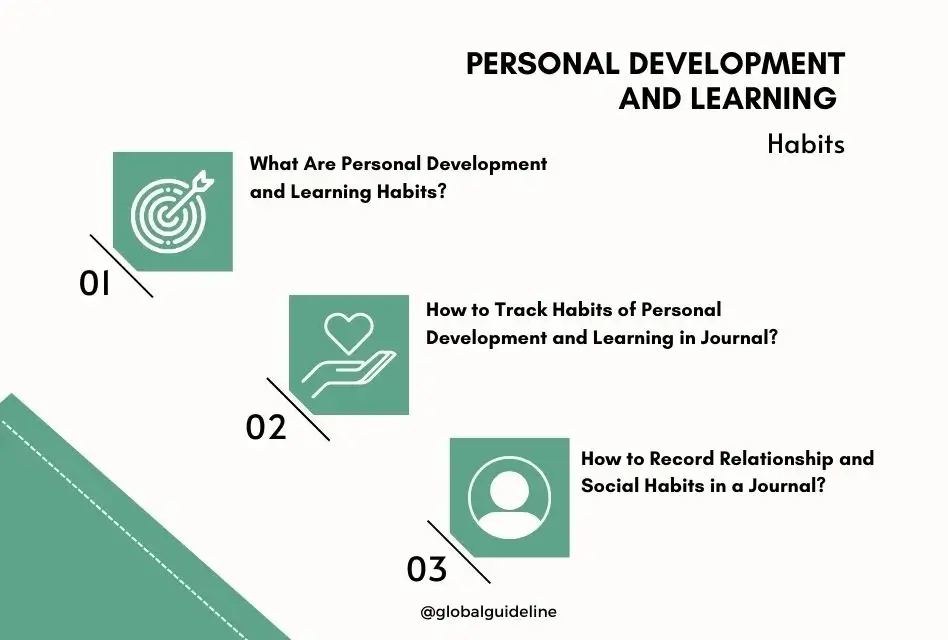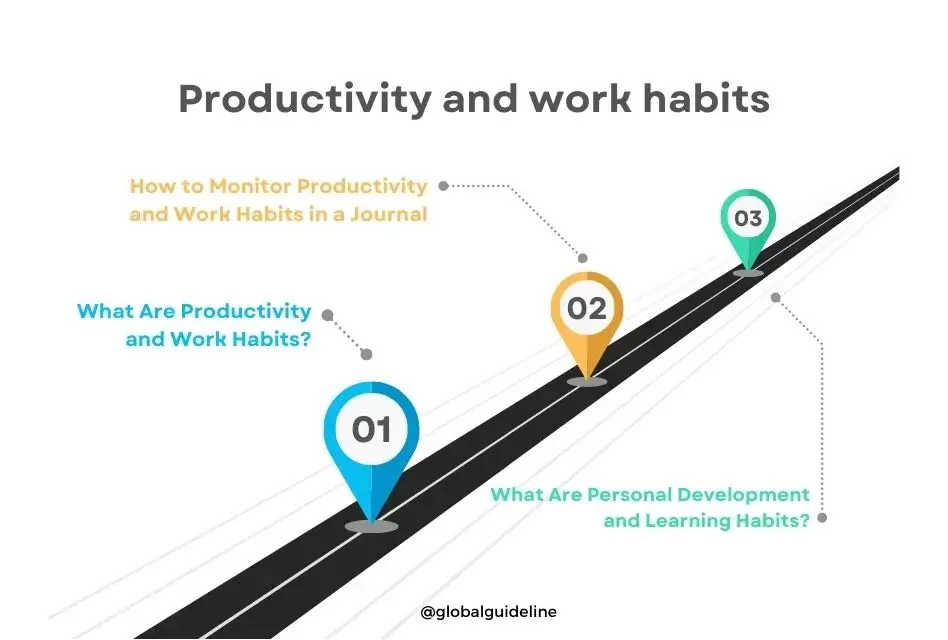Habits play a very key role in the pursuit of personal and professional success. It’s journaling tracking of habits that can monitor what is happening, sees patterns, and keeps oneself motivated on that journey toward achievements. Keeping major habits consistencies track momentum towards success, maintaining focus, and creating a roadmap for getting there. This post will be discussing the five most common types of habits to track in a journal for success, along with insight into how to effectively monitor and optimize them to achieve the best possible results.
Table of Contents

1. Health and Wellness Habits
Health and wellness are the roots of success in everything you do. The more your body and mind function at their best, the better you’ll be to take on challenges and make the most of opportunities that come your way. It can be helpful to monitor types of habit to track in journal that involve health and wellness to help you stick to your physical and mental well-being.
What are health and wellness habits?
Health and wellness habits are daily practices that contribute to your general wellbeing, including physical exercise, consumption of healthy meals, hydration, sleeping, and meditation.
Example: You may track how many ounces of water you can consume a day, the steps you take or the hours you sleep at night. All these are habits affecting directly the general health and wellbeing.
How to Record Health and Wellness Habits in a Journal
How to track habits in a journal? Identify your health and wellness habits you want to start developing. Then create a habit tracker journal where you can record the habits daily, weekly, or monthly. Just make use of a check list, chart or graph to visualize your progress.
For example, you can design a habit tracker for each month by drawing the formation of a grid that carries columns that represent each day of the month and rows that signify each habit. As soon as you go through and complete all habits one should mark it off in the journal.
The Effect on Achievement
Through regular tracking of types of habit to track in the journal relating to health and wellness, you will be able to identify patterns affecting your energy, mood, and well-being generally. Using that awareness, you’ll make proper adjustments so that your health supports your broader goals.
2. Productivity and work habits
The sense of success in any professional or personal project lies in productivity. Monitoring your productivity and working habits helps you, to really optimize your time and stay focused on the goals you set for yourself.
What Are Productivity and Work Habits?
Productivity and work habits are actions about how to structure, time manage, and complete work. Some of them can be: defining daily objectives, making a to-do list, time-management for on-the-job focus, or steering clear of distractions.
Example: You can track how many hours you spend on focused work, how many tasks you finish, or how often you have breaks to recharge.
How to Monitor Productivity and Work Habits in a Journal
How to make a journal habit? So, here is how you can track productivity and work habits by creating a bullet journal habit tracker: Define what productivity means to you. Then, write down these specific habits in your bullet journal habit tracker. You may track how many tasks you complete per day, how much time you spend working on deep work, or how often you are reviewing and adjusting your goals.
For instance, you can put down your weekly habit tracker to see how consistent you are with productivity habits. You may then have a section for tracking your daily goals, the number of tasks you complete in the day, and the time spent on focused work.
Impact on Success
Other habits to monitor in a journal relating to productivity would be personal development and learning habits. These will enable you to measure your progress and even identify areas for improvement. Then, after some time, you can refine your habits to acquire maximum efficiency and achieve both professional and personal goals.
3. Personal Development and Learning Habits
Personal development is the acquisition of new abilities, knowledge, or improvement as a person. Personal development and learning habits contribute to holding the commitment to lifelong learning and growth.
What Are Personal Development and Learning Habits?
Personal development and learning habits are behaviors that enrich your intellectual as well as emotional development. These include reading books, taking courses, practicing new skills, writing in a journal, and reflecting on experiences.
Example: You track the number of pages read per day, or the number of times you practice a new skill, or personal reflection time.
How to Track Habits of Personal Development and Learning in Journal?
How to write a habit tracker? Write your personal development and learning habits section in your journal. That can include a habit tracker template where you mark off the days of engaging in such activities as reading, practicing a skill or training in a new hobby, or attending a workshop.
Example: Incentivize the tracking of habit or monthly by rows for every personal development activity, for example reading, journaling, or online course. Observe your performance by marking each day you do those activities.
THE IMPACT ON SUCCESS
Since types of habits to track in journal relate to personal development and learning, you will always work on self-improvement. Self-improvement in practice also refines skills and knowledge developed through a flow of confident and strong beliefs toward resilience.
4. Financial Habits
Nothing is quite as important for long-term success as proper and healthy financial habits. Keeping tabs on your financial habits can give you control and eventual financial freedom through the building of wealth.
What Are Financial Habits?
Financial habits refer to all forms of money management–budgeting, saving, investing, and tracking expenses. They keep you in charge of your financial life and on track to achieving financial success.
Example: You can track daily expenses, the amount you save every month, or how often you check on your investment portfolio.
How to Track Habits in a Journal
How do you shift habits in a journal? In order to track financial habits, set a portion of your journal for personal finance. This can include a habit tracker ideas list for daily spending, savings, and investment habits.
Example: Use the bullet journal to track your financial habits. You could have a page that contains daily expenses log, a section for monitoring savings goal, and a chart showing the growth of investment.
Impact on Success
By following these types of habits to track in journal related to financial habits, you will be better placed in understanding your spending habits, savings, and even performances for investments. It helps one to make the necessary financial decisions, building wealth and ensuring proper financial security.

5. Relationship and Social Habits
Among other things, strong relationships and social connections form a strong basis for happiness and success in life. Tracking relationship and social habits would help you develop and maintain meaningful relationships with other people.
What Are Relationship and Social Habits?
Relationship and social habits refer to behaviors that enhance relationships with others. Some examples of these habits include talking regularly to loved ones, spending quality time with friends and family members, and having contact with colleagues.
Example: Track how often you call or visit family members, the number of social events you attend each month, or how many friends you check in with.
How to Record Relationship and Social Habits in a Journal?
The habit journal What is a habit journal? A habit journal is that piece of equipment through which you follow and trace various types of habits to track in your journal. Be it related to relationships or social activities, you can mark them down in your notebook, sectioning off the monitoring part of these habits, such as whom you contact and in what frequency or how frequently you go out to hang around.
Example: For example, design a weekly habit tracker with rows corresponding to each of your relationships and social habits-facet-to-face communication with a family member, meeting a friend for coffee, or attending an event. Track your performance on these by marking off each time you do them.
Effect on Success
Being able to monitor relationships and social behaviors will make sure you understand which matters the most, and therefore, you nourish the most. When other people feed good relationships, they get all the emotional support, opportunities to collaborate, and a sense of belonging which add up to overall success and well-being.
FAQ Section
Q: How do I track habits in a journal?
A: Create a habit tracker in your journal where you’d list the habits you are to track. Use checkboxes, grids, or charts to mark off each day you complete a habit so you can see the sequence of time you’ve covered.
Q: How do I write a habit tracker?
A: Make a habit tracker by combining the list of habits you want to track and creating a grid or chart for each habit to track when you have completed each day. This would be your personal habit journal and can be customized into what you want to achieve.
Q: What is the habit journal?
A habit journal is a notebook or digital tool to help track and monitor habits over time. Commonly, it has sections for daily, weekly, or monthly habit tracking and open space for reflection and goal setting.
Q: How do you change your habits in a journal?
A: To change habits in a journal, first record your habits to identify patterns and create specific goals for new habits you would like to develop. Record what you are doing in terms of progress, think through the challenges you are facing, and celebrate your successes.
Q: What is the Best habit tracker?
A: The best habit tracker is what you like and needs, whether it is a bullet journal, some digital application, or a simple printable template. It should be something that makes it comfortable for you and keeps you accountable, using it regularly.

Conclusion
Tracking types of habits in your journal is the best way to start gaining momentum, staying focused, and succeeding in almost every area of your life. By keeping an eye on key habits in health and wellness, productivity, personal development, finances, and relationships, you are able to make informed decisions, keep motivated, and judge your progress toward the goals set.
Be it in the format of a habit tracker journal interview, a bullet journal, or even just a free printable habit tracker, the key lies in creating the habit and doing it consistently and with purpose. Small daily acts compound over time into large successes toward the successful attainment of your goals.
Related Topic:
10 Channel Management Strategies to Boost Sales USA
Why 3 Out of 4 Investment Banking Interview Outfits Fail?
What Are the 5 Hidden Things That Sabotage Vision and How to Overcome Them?










